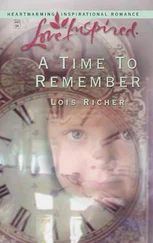Alexander Todd - A Time to Remember
Здесь есть возможность читать онлайн «Alexander Todd - A Time to Remember» весь текст электронной книги совершенно бесплатно (целиком полную версию без сокращений). В некоторых случаях можно слушать аудио, скачать через торрент в формате fb2 и присутствует краткое содержание. Город: Cambridge, Год выпуска: 1983, ISBN: 1983, Издательство: Cambridge University Press, Жанр: Химия, Биографии и Мемуары, на английском языке. Описание произведения, (предисловие) а так же отзывы посетителей доступны на портале библиотеки ЛибКат.
- Название:A Time to Remember
- Автор:
- Издательство:Cambridge University Press
- Жанр:
- Год:1983
- Город:Cambridge
- ISBN:0 521 25593 7
- Рейтинг книги:3 / 5. Голосов: 1
-
Избранное:Добавить в избранное
- Отзывы:
-
Ваша оценка:
- 60
- 1
- 2
- 3
- 4
- 5
A Time to Remember: краткое содержание, описание и аннотация
Предлагаем к чтению аннотацию, описание, краткое содержание или предисловие (зависит от того, что написал сам автор книги «A Time to Remember»). Если вы не нашли необходимую информацию о книге — напишите в комментариях, мы постараемся отыскать её.
A Time to Remember — читать онлайн бесплатно полную книгу (весь текст) целиком
Ниже представлен текст книги, разбитый по страницам. Система сохранения места последней прочитанной страницы, позволяет с удобством читать онлайн бесплатно книгу «A Time to Remember», без необходимости каждый раз заново искать на чём Вы остановились. Поставьте закладку, и сможете в любой момент перейти на страницу, на которой закончили чтение.
Интервал:
Закладка:
By the summer of 1941, when I moved with my family to our house in Pownall Park, Wilmslow, we were glad to have a good garden where we could grow vegetables and keep a few hens, for food was none too plentiful and at times not very good. We were especially fortunate because with the house we inherited a part-time gardener and odd job man, Harry Hardy (or 'Arry' Ardy as he would have put it), an ageing native who had worked locally on the land all his days, and who lived in a minute cottage nearby on the edge of Lindow Common. Hardy had a smallholder friend, George Potts, on whom we used to drop in of a Sunday morning, and through him we were able to get a decent supply of fruit, of potatoes and other vegetables, and even the odd chicken or duck. Petrol was, of course, also difficult to come by and I recall when my wife was in the maternity hospital a mile or two away at Prestbury for the birth of our first daughter, Helen (on 13 July 1941), I used to traverse the hot dusty road from Wilmslow to visit them on a 'utility model' bicycle which Ralph Gilson had somehow or other obtained for me from a little shop in one of the less salubrious sections of Stockport Road near Ardwick.
One evening in the late winter of 1943 - I seem to remember that it was in February or March - I was on firewatching duty in the laboratory and had gone to do some writing in my room when about 9 p.m. the telephone rang. I picked it up and heard a voice say 'This is the Vice-Chancellor of the University of Cambridge. The electors to the chair of biochemistry have just met and it is their unanimous wish that I ask you to accept the chair as successor to Sir Frederick Gowland Hopkins. We wish to publish the name of Sir Frederick's successor on the Senate House wall tomorrow and would like to have your agreement.' To say that you could have knocked me over with a feather would be something of an understatement. I knew, of course, that Hopkins was retiring; but I not only knew that I was by no means a biochemist as the academic biochemists understood the term, but I also knew the person who was generally expected to succeed Hopkins and his name was not Todd. So I stammered 'Do you mean you would like me to give you an answer to your question now?' 'Yes,' came the reply. 'Then Vice-Chancellor the only reply I can give you is no.' There was a moment of silence at the other end and then the Vice-Chancellor said 'Would you hold on for a moment while I have a word with the electors.' I then heard sounds of a discussion in the background and after a moment or two I had in succession my father-in-law Sir Henry Dale, Sir Robert Robinson and Sir Charles Harington on the line. The burden of their song was ' Don't insult Cambridge by turning it down flat - at least agree to come and have a look at it.' The upshot was that I agreed that I would go to Cambridge, look at the biochemistry department, and defer my answer until I had done so.
Accordingly, a week or so later I travelled down to Cambridge and stayed at Emmanuel with the Master (Dr Hele), himself a biochemist, and spent the following day looking at the position in the Sir William Dunn Department of Biochemistry. It quickly became clear to me that it was no place for me. It is difficult now to summarise my reactions without appearing to be unfair but briefly they were as follows:
(1) There was no real unity of purpose in the department. It was a series of little independent kingdoms sharing the departmental budget between them and the only gesture to unity was an almost sycophantic attitude to Hopkins on the part of the leaders in each of them.
(2) With the exceptions of Robin Hill and F. G. Hopkins himself the staff seemed to have little or no interest in the only aspects of biochemistry in which I had any expertise.
(3) The teaching courses were to my mind thoroughly inadequate as regards their chemical content and could produce no students who would fit into my type of work.
(4) I knew that I had a large number of people who wished to do research with me and on whom the progress of my work depended; there was simply no room to accommodate them in the Cambridge biochemical laboratories.
So, much to the indignation (but also I suspect to the relief) of the staff of the Cambridge department of biochemistry I refused the chair. When I met the Vice-Chancellor-elect and conveyed my decision to him, he told me he was not really surprised; he told me, however, that in the following year they were hoping to elect a successor to Sir William Pope who had died early in the war and had left the chair of organic chemistry and headship of the chemistry department - or to give it its proper title the University Chemical Laboratory - vacant. He realised that I would be unable to make any kind of commitment, but wanted to know whether this might be of more interest to me. I rather guardedly said that, subject to various conditions, it might be, and returned to Manchester.
This was not indeed the first time that I had heard of this possibility. Pope died in the autumn of 1939 not long after the outbreak of war and, shortly thereafter, Robert Robinson asked me whether I would be prepared to go to Cambridge if I were approached. I said I would not, partly because I considered it would be unfair to Manchester and to its Vice-Chancellor who had given me my chance, and partly because until the war was over I had plenty to do without trying to move to Cambridge. Robinson accepted my view readily enough, but told me not long afterwards that it had been agreed to hold the chair vacant until the war was over when he hoped I would think about it again. By 1943 the tide of war was turning so that a decision by Cambridge to proceed to an election in 1944 was understandable.
I now had to do some hard thinking for it was obvious that having rejected biochemistry I was going to be asked to take organic chemistry. The choice before me - Cambridge or Manchester - was by no means an easy one. I had in Manchester a large and thriving department with about thirty research workers in organic chemistry and the quality of our undergraduate input was at least as good as - and possibly better than - that of any other English provincial university. We were housed in old buildings but I had some reason to believe that the construction of a new chemistry department on an adjacent site figured in the university's development plans, although I did not know how high it stood in the priority list. I also had in Sir John Stopford a Vice-Chancellor whom I admired tremendously and who had helped me at every turn, and, in Michael Polanyi, a colleague whom I liked and with whom I was on the best of terms. Furthermore, my wife and I were very happy with both our social and geographical situation and were in no hurry to move. Against this, of course, we had to weigh the claims of Cambridge, taking a long view of the likely consequences of moving there. The Cambridge laboratories I had only seen rather fleetingly on the occasion of a British Association meeting in 1938, but my recollection was that they were rather old and badly equipped. As a school of organic chemistry Cambridge was virtually non-existent; its research effort was negligible in size, although the capacity of the laboratories (substantially occupied during the war by the chemistry departments of two London colleges - Queen Mary College and St Bartholomew's Hospital Medical School) was considerably greater than that of Manchester. The amount of actual or potential research accommodation was of importance, for I was quite well aware that the nature and success of our Manchester research would almost certainly lead to my being faced with a large influx of would-be research students both from elsewhere in Britain and from overseas, as soon as the war ended. It was also undeniable that, by long-standing tradition, Oxford and Cambridge had virtually first choice of applicants for university admission. My wife too had been up at Newnham College, Cambridge and both her father and her younger brother Robin were Trinity men; as a result we had many friends in Cambridge, and there was no doubt about the attractiveness of Cambridge as a place in which to live. I had also to consider the future of my lively Manchester group.
Читать дальшеИнтервал:
Закладка:
Похожие книги на «A Time to Remember»
Представляем Вашему вниманию похожие книги на «A Time to Remember» списком для выбора. Мы отобрали схожую по названию и смыслу литературу в надежде предоставить читателям больше вариантов отыскать новые, интересные, ещё непрочитанные произведения.
Обсуждение, отзывы о книге «A Time to Remember» и просто собственные мнения читателей. Оставьте ваши комментарии, напишите, что Вы думаете о произведении, его смысле или главных героях. Укажите что конкретно понравилось, а что нет, и почему Вы так считаете.










